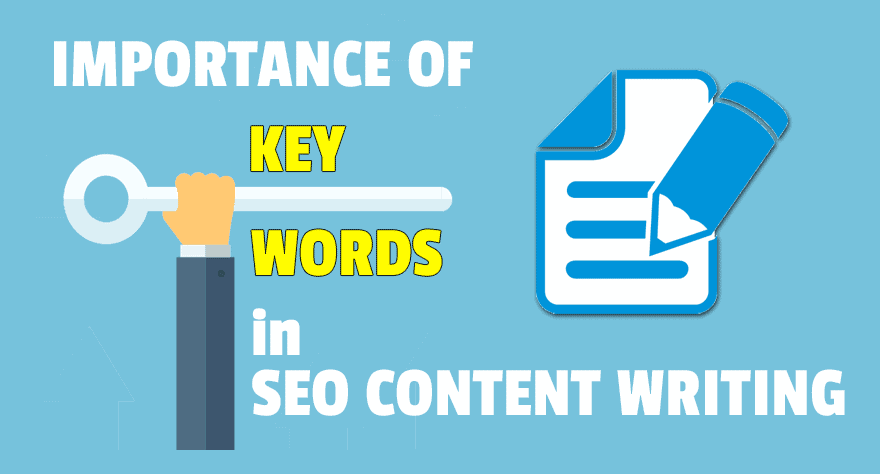SEO content writing is the foundation of any successful digital marketing strategy. It refers to the process of crafting high-quality, informative, and keyword-optimized content that helps websites rank higher on search engines like Google. When done correctly, SEO content writing not only improves a website’s visibility but also attracts the right audience by addressing their search intent. The key lies in blending valuable information with smart SEO techniques such as keyword placement, engaging headings, internal linking, and readability.
By focusing on SEO content writing, businesses can drive organic traffic, build authority in their niche, and convert visitors into loyal customers. It’s not just about writing for search engines—it’s about creating content that genuinely helps readers while naturally including target keywords. Whether you’re running a blog, eCommerce site, or service-based business, SEO content writing ensures your message reaches the people who are already searching for what you offer. In today’s competitive online space, mastering SEO content writing is no longer optional—it’s essential.
What is SEO Content Writing?

SEO content writing is the process of creating high-quality, well-structured, and keyword-optimized content that helps websites rank higher on search engines like Google, Bing, or Yahoo. At its core, SEO content writing combines valuable information with targeted keywords in a natural and engaging way. The goal is to make your content easy to find by search engines and genuinely helpful to your audience. When someone types a query into a search engine, SEO content writing ensures your content appears among the top results by matching the user’s search intent.
A strong SEO content writing strategy includes proper keyword research, clean formatting with headers and subheaders, internal and external linking, and user-friendly language. It’s not just about placing keywords randomly—it’s about creating meaningful, well-organized content that provides solutions, answers, or value to the reader. This helps increase dwell time, reduce bounce rates, and improve website authority over time.
Whether it’s a blog post, product page, landing page, or article, SEO content writing is the bridge between your business and your target audience. It drives organic traffic, builds brand trust, and encourages conversions—all without paying for ads. In today’s digital world, SEO content writing is a must-have skill for businesses, bloggers, and marketers who want to grow online. With the right approach, SEO content writing turns simple words into a powerful tool for online success.
Why is SEO Content Writing Important?

SEO content writing is important because it plays a direct role in improving your website’s visibility, driving organic traffic, and helping you reach the right audience. In today’s competitive online world, simply having a website is not enough. You need content that ranks well on search engines—and that’s exactly where SEO content writing comes in. When your content is optimized with the right keywords, structure, and user intent in mind, it becomes easier for search engines like Google to understand and display it in top search results.
High-quality SEO content writing builds trust with your audience by offering real value, solving problems, and answering relevant questions. It helps position your brand as an authority in your niche, attracting more readers and potential customers. Well-optimized content increases engagement, reduces bounce rates, and encourages longer site visits—all of which are positive signals to search engines.
SEO content writing supports long-term growth without the ongoing cost of paid ads. Once your content starts ranking, it can bring in traffic consistently for months or even years. It’s a smart investment that works behind the scenes to grow your brand, generate leads, and boost sales naturally.
SEO content writing is not just about pleasing search engines—it’s about delivering meaningful, optimized content that benefits both your audience and your business. That’s why mastering SEO content writing is essential for digital success.
How Does SEO Content Writing Work?
SEO content writing works by aligning your content with what people are searching for online and how search engines like Google analyze and rank that content. At its heart, SEO content writing involves creating informative, engaging, and well-optimized content that satisfies both search engine algorithms and real human readers. The process begins with keyword research—finding the exact terms your audience types into search engines. Once you identify those keywords, especially long-tail and low-competition ones, you naturally include them in your headings, subheadings, and throughout your content.
In SEO content writing, structure plays a vital role. Using proper formatting, short paragraphs, bullet points, and relevant headings not only improves readability but also helps search engines understand your content better. Additionally, internal linking (linking to other pages on your website) and external linking (to trustworthy sources) improve authority and trustworthiness.
Another key aspect of SEO content writing is optimizing for user intent. Your content must directly answer questions, solve problems, or provide valuable information that your target audience is seeking. This increases engagement and reduces bounce rates, both of which positively impact rankings.
SEO content writing also involves updating content regularly, ensuring it’s fresh, relevant, and up to date. When done consistently, SEO content writing helps your website appear on top of search engine results, drives organic traffic, and builds long-term credibility online.
The Role of Keywords in SEO Content Writing
Keywords are the heart of SEO content writing. They help search engines understand what your content is about and match it with what users are searching for online. When used strategically, keywords improve visibility, drive targeted traffic, and increase your chances of ranking higher in search engine results.
- Identify User Intent: Effective SEO content writing starts with understanding what your audience is searching for. Keywords reveal the questions, problems, or needs of users, allowing you to create content that directly addresses their intent.
- Boost Search Engine Rankings: Search engines scan your content for relevant keywords. Using the right ones—placed strategically in titles, headers, and body text—helps search engines rank your page for specific queries.
- Increase Organic Traffic: When your content includes keywords your target audience frequently searches for, it has a better chance of appearing in front of them. This increases organic traffic without spending on ads.
- Improve Content Relevance: Keywords help keep your content focused and relevant. They guide your writing, ensuring that you stay on topic and deliver value that aligns with what readers are actually looking for.
- Support Internal Linking: Keywords make it easier to link related content within your website, enhancing user experience and helping search engines crawl your site more efficiently.
Best Practices for SEO Content Writing

To create powerful and effective SEO content writing, it’s essential to follow best practices that help your content rank higher and serve your audience better. SEO content writing is not just about inserting keywords—it’s about writing high-quality, valuable content that is optimized for both users and search engines. By following these best practices, you can improve visibility, drive organic traffic, and build a strong digital presence.
- Start with Keyword Research: Before you begin writing, identify the right keywords your audience is searching for. Use tools like Google Keyword Planner, Ubersuggest, or SEMrush to find relevant terms with good search volume and low competition.
- Write for Your Audience First: Always prioritize your readers. Understand their needs, problems, and questions. SEO content writing should offer value, not just aim to rank.
- Use Keywords Naturally: Avoid keyword stuffing. Instead, place your main keyword (like “SEO content writing”) in key areas such as the title, first paragraph, subheadings, and conclusion.
- Create Engaging and Clear Headlines: Strong headlines catch attention and encourage clicks. Make sure they include your focus keyword and clearly describe what the content offers.
- Structure Your Content Properly: Use headings (H1, H2, H3), short paragraphs, bullet points, and lists to make the content easy to read. Good structure improves user experience and SEO performance.
- Optimize Meta Descriptions: Write clear and compelling meta descriptions for every page. Include your focus keyword and keep it under 160 characters.
- Use Internal and External Links: Link to relevant pages on your own site (internal links) and trusted sources (external links) to improve credibility and help search engines understand your content better.
- Improve Readability: Use simple, conversational language. Avoid jargon. Break content into small chunks to make it easier to read and understand.
- Focus on Mobile Optimization: Ensure your content is mobile-friendly. A responsive design and fast-loading pages are crucial for better SEO results.
- Update Content Regularly: Search engines prefer fresh content. Regularly update your articles with new information, links, or stats to keep them relevant.
Common Mistakes in SEO Content Writing
Even the most experienced writers can make mistakes when it comes to SEO content writing. These mistakes can hurt your search engine rankings, reduce reader engagement, and prevent your content from reaching its full potential. Understanding and avoiding these common errors is key to creating content that performs well both for users and search engines.
- Keyword Stuffing: Overusing the target keyword makes the content look unnatural and spammy. Instead of improving SEO (Search Engine Optimization), it can hurt your rankings. Focus on using the keyword naturally and sparingly.
- Ignoring Search Intent: Writing without understanding what users are actually looking for leads to irrelevant content. Always match your content to the reader’s intent—informational, navigational, or transactional.
- Weak Headlines and Meta Descriptions: Your title and meta description are the first things people see on search engines. A boring or unclear headline can lower click-through rates. Make them catchy and keyword-rich.
- Lack of Internal Linking: Not linking to other relevant pages on your site is a missed SEO opportunity. Internal links help search engines crawl your site and keep visitors engaged longer.
- Poor Readability and Structure: Walls of text and lack of headings can drive readers away. Use short paragraphs, bullet points, and subheadings to make your content easy to read.
- Skipping Content Optimization: Many writers forget to optimize images, URLs, and use alt text. These small SEO practices play a big role in improving page rankings.
Benefits of SEO Content Writing

SEO content writing plays a powerful role in building a strong online presence. Whether you run a business, blog, or eCommerce store, writing optimized content helps your website get discovered by the right people. SEO content writing is more than just adding keywords—it’s about delivering value to readers while boosting your site’s ranking in search engines.
- Improves Search Engine Rankings: SEO content writing helps your website appear higher in search results. By using targeted keywords naturally, search engines understand your content better and rank it accordingly.
- Increases Organic Traffic: With well-optimized content, your site attracts more visitors without paid ads. Quality SEO content draws in users who are already searching for your topics.
- Builds Audience Trust: Valuable and informative content shows readers that you understand their needs. This trust encourages them to return and engage more with your site.
- Enhances User Experience: SEO content is easy to read, well-structured, and informative. A smooth experience keeps users on your site longer.
- Boosts Brand Authority: Consistent SEO content writing positions your website as a trusted expert in your industry or niche.
- Generates Quality Leads: Targeted SEO content attracts users genuinely interested in your services or products, increasing the chance of conversions.
- Supports Long-Term Marketing Goals: Unlike paid ads, SEO content keeps working over time, bringing in traffic for months or even years.
- Reduces Marketing Costs: With consistent SEO content writing, you can achieve great results without spending heavily on ads, saving money over time.
Conclusion
SEO content writing is an essential element for any online presence aiming to succeed in today’s competitive digital landscape. By focusing on creating valuable, well-researched, and optimized content, businesses can enhance their visibility, attract the right audience, and build lasting authority. Effective SEO content writing goes beyond just inserting keywords—it’s about delivering informative, engaging, and relevant content that answers user queries while aligning with search engine algorithms.
For any website looking to improve its organic traffic, SEO content writing is the key. It ensures that your content ranks higher on search engine results pages (SERPs), bringing more targeted traffic and boosting conversions. By consistently implementing SEO best practices, you can establish your brand as a trusted resource, stay ahead of competitors, and continuously drive sustainable growth. Embrace SEO content writing today, and watch your online presence thrive.
FAQs
What is SEO Content Writing?
SEO content writing is the practice of creating high-quality, keyword-optimized content that helps a website rank higher in search engine results. It focuses on writing content that’s useful to readers while also meeting search engine guidelines.
Why is SEO Content Writing important?
SEO content writing is important because it helps drive organic traffic to your website, improves online visibility, and builds authority in your niche. It ensures your content reaches the right audience searching for related topics.
How does SEO Content Writing work?
SEO content writing works by integrating target keywords naturally into content, optimizing headings, improving readability, adding internal and external links, and following SEO best practices to help search engines understand and rank the content.
What are the key elements of SEO Content Writing?
Key elements include keyword research, engaging headlines, proper formatting, internal linking, user intent, meta descriptions, and original, value-driven content that solves the reader’s problem or answers their query.
Can SEO Content Writing increase website traffic?
Yes, well-optimized SEO content writing can significantly increase website traffic by ranking higher in search engines and attracting visitors who are actively searching for your content or services.

